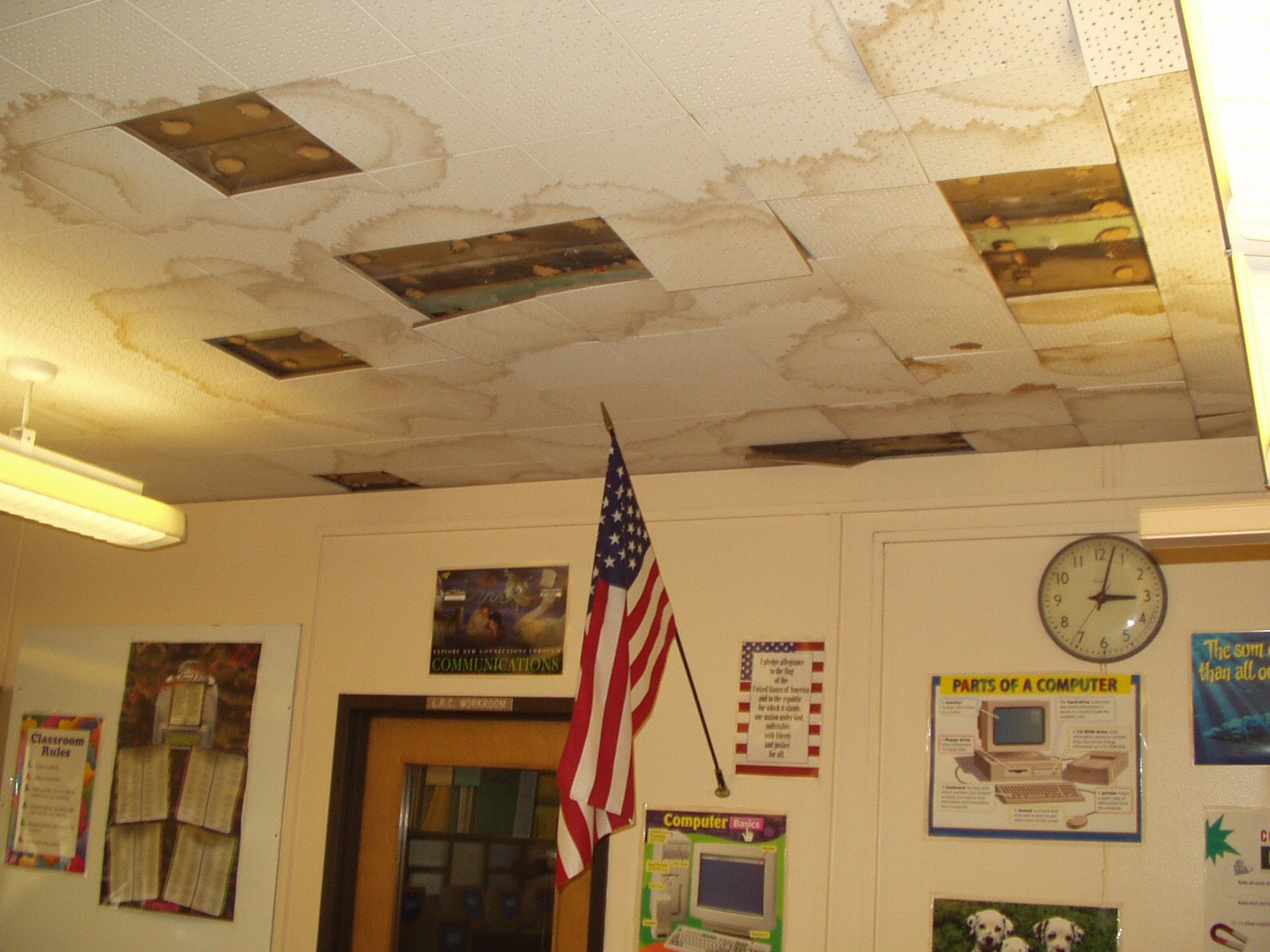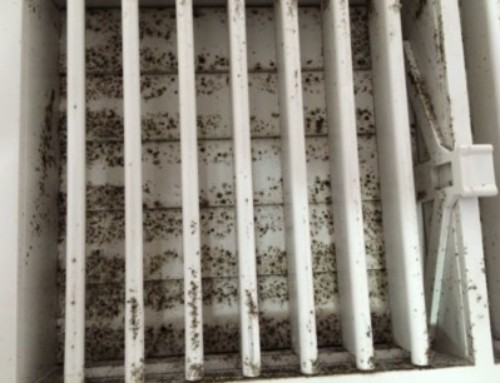Mold in the classroom is making teachers and students sick, according to an article that appeared in the August 21, 2017 edition of the South Florida Sun-Sentinel, the presence of toxic mold in Broward County public school classrooms continues to be a problem for many teachers and students. The article claims that mold was found growing on the surfaces of student desks at Northeast High School in Oakland Park. According to one anonymous teacher’s written complaint from Northeast High School, “Students are always ill, need to leave class to blow their nose, absent because of chronic sinus infections, constant coughing and congestion, watery eyes and nose, red eye from irritation, nausea, and so on. According to the article, one Northeast High teacher suffered from “monthly upper respiratory infections, sore throat, voice loss and extreme fatigue” which began when he started working there. The same teacher had to make multiple trips to urgent care due to his inability to breathe which is a common symptom that many of our clients complain of who have been victims of airborne mold exposure.
Mold in the Classroom Need to be Taken Seriously
Children should not be forced to endure toxic mold exposure when they attend school. The symptoms that the anonymous teacher complained that his or her students were suffering from are extremely disruptive to a child’s learning process. School aged children shouldn’t be made ill by the air quality of their learning environment.
Broward County teachers have long been afraid to report suspected mold problems in their classrooms due to fear of retaliation. Mold inspectors hired by the Broward County school system claim to have advise school personnel that when “they find mold, they advise on-site staff to wipe it with disinfectant.” Unfortunately, wiping surfaces covered in toxic mold is not an accepted method of mold remediation according to generally accepted mold remediation industry standards. If mold is appearing on surfaces where teachers and students sit, this indicates a much larger problem that needs to be addressed by sampling the air for mold spores inside the suspected classroom. Wiping surfaces only temporarily and partially removes the mold from such surface. Teachers and students are likely continuing to be exposed to potentially toxic mold spores in the air in which they are breathing. Mold assessors need to investigate the source of the mold spores including testing the air being circulated by air conditioning vents, and potential hidden mold that may be living in ceilings, walls, under floors.
Mold is commonly the result of the failure to properly dry-out water damaged building materials such as ceilings and drywall after a roof leak. Many of Broward County schools has periodic roof leaks to the age of the roofs and if the walls and ceilings are not immediately dried out or replaced, it is very likely that mold will develop from such conditions.
Teachers are Encouraged to Report Mold in their Classrooms
According to the article, the school board encourages teachers to file anonymous complaints regarding the presence of mold in their classrooms without the fear of retaliation. However, reporting the problem doesn’t always result in a complete resolution. “The assessments do not gather enough detail and lack follow-up, according to the district’s facilities task force, a community group that advises the School Board on maintenance, new construction and renovation.” “Teachers interviewed by the Sun Sentinel said no one told them they could ask staff to check their air and no materials are given to teachers about potential hazards.” Teachers are alleging that only Broward County facilities services staff were trained in issues regarding indoor air quality protocols, however teachers were not advised how to identify and report mold to the School Board.
Free Consultation
Of course, with every situation, there may be exceptions and differing facts which require the analysis of a mold attorney. The Mold Lawyers at Militzok & Associates offer a FREE consultation to discuss the unique facts of your mold claim with our experienced attorneys. For more information, call us at (954) 241-2260, send an e-mail to info@themold.lawyer.
Militzok & Associates are toxic black mold attorneys who are proud to represent individuals and families throughout South Florida who are suffering injuries from mold exposure, musty smells and other types of indoor air quality issues. We represent clients in the following cities of Fort Lauderdale, Pompano Beach, Coral Springs, Davie, Plantation, Weston, Miramar, Sunrise, Coconut Creek, Dania Beach, Lauderhill, Margate, Parkland, Deerfield Beach, Oakland Park, Hallandale, Pembroke Park, Pembroke Pines, Hollywood, Cooper City, Tamarac, Wilton Manors, Lauderdale Lakes, North Lauderdale, Lighthouse Point, Southwest Ranches, Hillsboro Beach, West Park and Pembroke Park.
We also represent clients in Miami-Dade county in the following cities: Miami, Miami Beach, Hialeah, Homestead, Coral Gables, Doral, North Miami, Aventura, North Miami Beach, Aventura, North Miami Beach, South Miami, Miami Gardens, Key Biscayne, Sunny Isles Beach, Pinecrest, Miami Lakes, Opa Locka, Cutler Bay, Sweetwater, Palmetto Bay, Miami Springs, Miami Shores, Florida City, Surfside, Bay Harbor Islands, North Bay Village.
In Palm Beach County, we represent clients from South Bay, Golf, Manalapan, Briny Breezes, Greenacres, Magonia Park, Hypoluxo, Highland Beach, Lark Clarke Shores, Belle Glade, Pahokee, Glen Ridge, Tequesta, Atlantis, Loxahatchee Groves, Palm Beach Shores, Haverhill, Gulf Stream, South Palm Beach, Cloud Lake, Juno Beach, Palm Springs, North Palm Beach, Wellington, Lake Park, Lantana, Palm Beach Gardens, Jupiter, Riviera Beach, Boynton Beach, Jupiter Inlet, Ocean Ridge, Palm Beach, Royal Palm Beach, Boca Raton, West Palm Beach, Lake Worth, and Delray Beach.



Leave A Comment